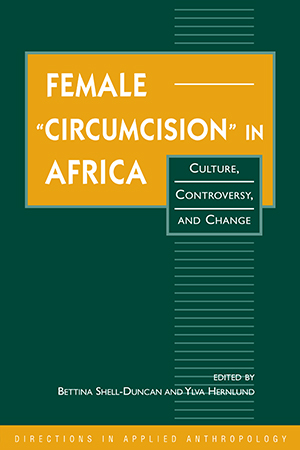Though the issue of female genital cutting, or "circumcision," has become a nexus for debates on cultural relativism, human rights, patriarchal oppression, racism, and Western imperialism, the literature has been separated by diverse fields of study. In contrast, this volume brings together contributors from anthropology, public health, political science, demography, history, and epidemiology to critically examine current debates and initiatives, and to explore the role that scholars can and should—or should not—play in approaching the issue.
Case studies from nine African countries where female genital cutting (FGC) is traditionally and currently performed evaluate the impact of international efforts to eliminate the practice. A focus on local reactions to external involvement underscores that the myriad programs fashioned to effect changes in FGC ritual and procedure must be initiated and supported by indigenous communities if they are to be lasting and effective.
Bettina Shell-Duncan is assistant professor of anthropology at the University of Washington. Ylva Hernlund is research associate at the Center for Studies in Demography and Ecology (CSDE) at the University of Washington.
"A durable collection of fourteen articles that is riveting and authoritative in its overall treatment of the many nuances of this phenomenon.... No collection which purports to focus on gender and/or human rights would be complete without this [book]."—UN21 Newsletter, ASIL
"Conveys the complexity and variety of these practices, so often unhelpfully lumped together under the rubric of ‘Female Genital Mutilation' (FGM). The editors are to be commended for the range of voices they have brought together and the many surprising contradictions and paradoxes they have brought to light. The next time I teach my Gender in Africa course, I will have this useful volume to offer to my students."—Mary H. Moran, Journal of Anthropological Research
"A very impressive, significant text that sets out to restore some balance to the debate on ‘FGM' as well as providing much-needed data.... an essential starting-point for a subject usually presented wrapped in rhetoric."—Murray Last, The Journal of Modern African Studies
"Succeeds in deflating many widely held assumptions about female "circumcision" ... and in raising important questions about these widespread and highly contested practices. Students, scholars, policymakers, and rights advocates will learn a great deal from this provocative and timely book."—Library Journal
"A remarkably coherent collection.... Definitely the most exhaustive, well-referenced, and thoughtful book-length work produced on the subject."—Carolyn Sargent








